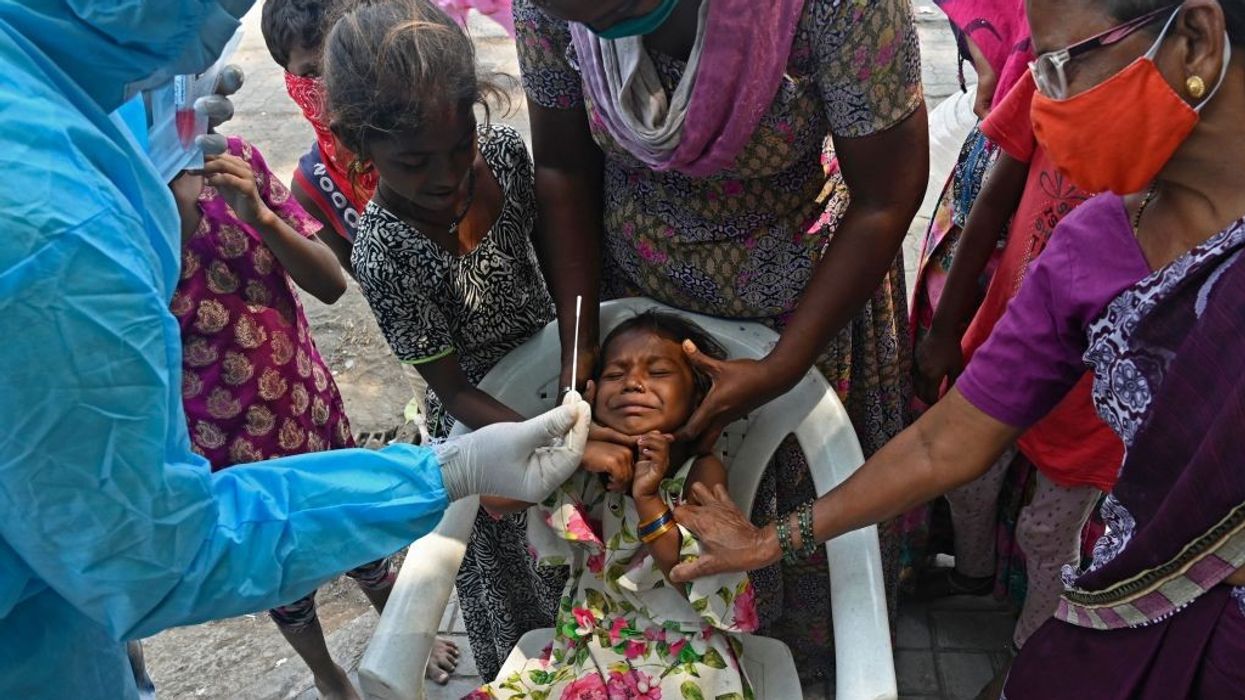INDIA reported its most Covid-19 cases and deaths in months on Monday (22), on the first anniversary of the start of a chaotic nationwide lockdown that left many people jobless and shrank the economy.
Authorities reintroduced some curbs to slow the spread of the virus, especially in the western state of Maharashtra, which accounted for nearly two-thirds of the 46,951 new infections and the majority of the 212 deaths.
Some hospitals in the country's worst-affected districts have begun to run short of beds, and there is a rising clamour for the immunisation campaign to be widened to cover more people, instead of just the elderly and those suffering from other health conditions.
With the biggest rise in cases since early November, India's total has surpassed 11.65 million, the highest in the world after the US and Brazil. The increase in deaths was the largest since early January, and took the total to 159,967.
In some parts of India, most people still go out without masks and flout advice on social distancing, including politicians campaigning in four states where elections will begin later this month.
The health ministry has also warned that a huge gathering of devotees for a Hindu festival could lead to a spike in cases as people from all over the country flock to the banks of the Ganges river in the holy northern town of Haridwar.
Local authorities have said they expect 150 million visitors at the weeks-long Mahakumbh that began this month and peaks in April. The festival is held only once every 12 years, and many Hindus believe bathing in the river during this period absolves people of sins.
The surge in cases has also brought into focus India's low rate of immunisation relative to population, despite being the world's biggest maker of vaccines.
India has administered more than 44 million doses since starting its vaccination campaign in mid-January, but wants to cover 300 million of its 1.35 billion people by August.
Vaccine exports
India has donated or sold more than 60 million vaccine doses to 76 countries, saying some shipments are necessary to meet contractual obligations.
As vaccine demand rises at home, top vaccine manufacturer the Serum Institute of India (SII) has delayed further shipments of the AstraZeneca shot to the UK, Brazil, Saudi Arabia and Morocco.
India has accepted experts' recommendation to widen the interval between two doses of the AstraZeneca shot - branded as COVISHIELD by SII - to 4-8 weeks, from 4-6 weeks currently.
The longer interval could help India cover more people with at least one dose.
In Britain, regulators have said shots can be given up to 12 weeks apart. India's health ministry said "it appears that protection is enhanced if the second dose of COVISHIELD is administered between 6-8 weeks, but not later than the stipulated period of 8 weeks".
Maharashtra, India's richest state, has offered to make doses itself to ease the supply pressure on SII and vaccine developer Bharat Biotech, whose COVAXIN shot is also being used in the country's inoculation programme.
The state reported 30,535 new coronavirus infections in the past 24 hours, forcing local authorities to reopen some quarantine centres. The centres had been closed after the national daily caseload began to decline after peaking at nearly 100,000 cases a day in September.
Maharashtra, home to Mumbai, has been accounting for more than half of India's total cases after the full reopening of its economy unleashed a second wave of infections late last month.
Nearly a dozen other states, including Punjab, Madhya Pradesh and Karnataka, home to the tech hub of Bengaluru, have also seen a spike in cases in the past few weeks.





